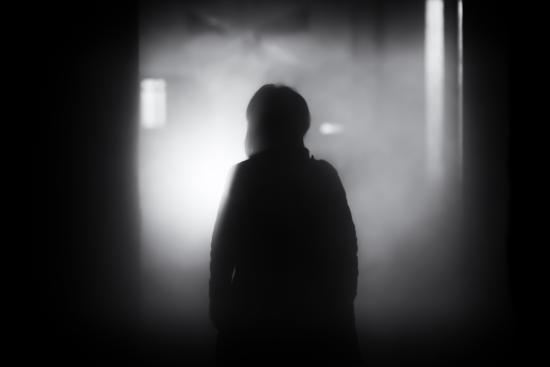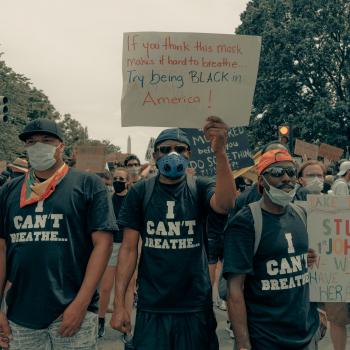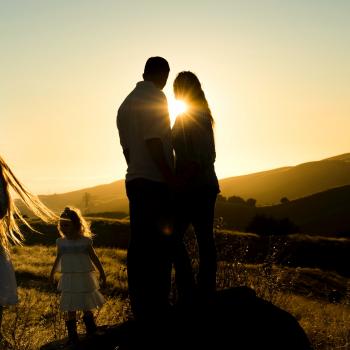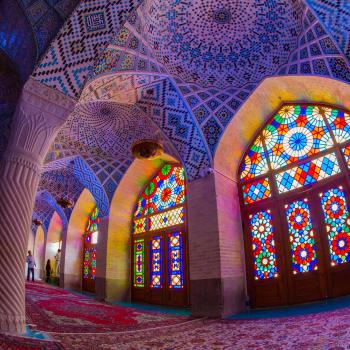Written by Nadiah Mohajir, MPH | Co-Founder & Executive Director of HEART Women & Girls
TRIGGER WARNING: Sexual abuse & assault. | The following incidents are true stories. All names have been changed to protect confidentiality.

Sarah’s stepfather began molesting her when she was a mere girl of 14. When she turned 19, she couldn’t take it anymore and confronted him by saying that she would report him. He responded by threatening her, saying that he would expose her “sins” to everyone, including her new fiancé. She now lives in perpetual fear and shame, believing that she is a sinner who will have to answer to God for the physical contact between her and her stepfather.
Asim was just a boy when he was assaulted by a school administrator at his Quran school. When he finally told the principal at the school, he was told it was all a bad dream and that he was imagining it. He struggled all through college with depression, suicidal ideations, and poor grades, eventually dropping out of college entirely. Years later, this school administrator was arrested for sexually assaulting another boy at the school.
Linda sought refuge for a personal issue in her local imam, only to find herself being sexually assaulted by him. When she told her parents, her father told her not to speak ill of someone so revered and knowledgeable. Linda left home – as well as her faith – that day, and never spoke to her family again.
Finally, Serena is newly married, and confided to an “aunty” at the mosque that her husband was forcing sex on her every night. The aunty told her she was being overly dramatic: A husband cannot rape his wife, as he has sexual rights over her.
I tell you these stories to demonstrate that not only does sexual violence happen in the Muslim community, but that it is often perpetrated by people we love and respect, including people in leadership.
I tell you these stories to show how there were many people in these victims’ lives – the aunty, the parents, and even religious leadership – that could have changed the course of these victim’s lives, had they responded differently. They could have prevented future abuse to the victim and others by holding the abusers accountable. Yet, they didn’t help. Some didn’t help because they didn’t believe the victim. Others didn’t help because they were too paralyzed by the stigma of sexual assault. And others didn’t help because they simply didn’t know how.
Not only does sexual violence happen in the Muslim community, but that it is often perpetrated by people we love and respect, including people in leadership.
Finally, I tell you these stories because I know many, many, many men and women just like these victims that have shared similar stories with me about abuse and have been struggling in silence. It is why I am proud to be the Executive Director of HEART Women & Girls, an organization dedicated to dismantling this silence around sex and sexual abuse so that we can work together to create healthy, safe communities.
The CDC estimates that 1 in 4 girls and 1 in 6 boys are victims of sexual assault before the age of 18. There is no reason to believe that this number is any different in Muslim communities. We know that sexual violence does not discriminate; it impacts all communities and all people. We also know that sexual assault is one of the most underreported crimes in the US— nearly 70% of assaults are not reported to law enforcement. Research indicates that this likelihood of not reporting is higher in communities of color.
Through our work at HEART, we have learned that in the Muslim community, in particular, the rate of underreporting is even higher— perhaps as high as 85-90% never being reported. As such, we face a grim reality: Too many sexual violence victims are suffering alone and in silence in the Muslim community. And, even more disturbing— too many of their abusers are not just getting away with it, but likely targeting more victims.
Sexual violence does not discriminate; it impacts all communities and all people.
This means that it is likely that you or someone you know will be victims of sexual assault at some point in their lives. You or someone you know will have to seek help in order to heal from the trauma or expose the abuser. With a human rights crisis this big, we must all know how to appropriately respond to survivors when they disclose abuse. Here are ten things you can do today to be proactive and prepared.
When responding to survivors:
- Believe them. Believe a survivor when he/she discloses to you. What you say to a survivor can make a huge impact on his or her healing journey. Here is a video that models messages of love and compassion to survivors.
- Encourage professional support. Survivors feel they have lost control, so it’s important that they make decisions which help them move forward, regardless of whether they ultimately decide to press charges or not. Meet survivors where they are, rather than telling them what they need to be doing. It may take time for them to seek help, so giving them that control is crucial.
- Be patient. Do not interpret flashbacks, bad days, or silence as setbacks. Avoid phrases that suggest they are taking too long to recover, such as “How much longer will you be feeling this way?” or, “You were doing great for so long, why the setback?”
- Understand barriers to disclosing. Survivors find it difficult to disclose. They may feel guilt or shame, or fear their perpetrator. They may be worried you won’t believe them, or that they’ll be blamed for the abuse. Understanding barriers to disclosing can help you support the survivor more effectively. Learn more here about why survivors don’t tell.
- Practice self-care. While it is crucial to pay attention to the survivor’s needs, it is also important to practice self-care so that you don’t get burned-out. Take some time for yourself to relax, read, journal, or talk to a therapist.
Too many sexual violence victims are suffering alone and in silence in the Muslim community. And, even more disturbing— too many of their abusers are not just getting away with it, but likely targeting more victims.
When thinking about community-wide prevention:
- Know what sexual violence is. Sexual violence is any unwanted sexual activity without the other person’s consent. Know the definitions of sexual assault, sexual abuse, and sexual harassment. Know the definitions of consent and the conditions when consent can never be present. Learn more here.
- Talk to your kids. Speak with your kids and loved ones about sexual abuse, and encourage similar conversations at your school and mosque. Here is a brief guide to help you begin this important conversation.
- Be mindful of your behavior. Because the prevalence of sexual violence is so high, it is likely that there is a survivor in your presence when you are with others. Your interactions or expressing a strong opinion can discourage a struggling survivor from seeking help. Be mindful of the language that blames the victim (i.e. Why was she there, Why didn’t she stop him) or that encourages silence (i.e. No one will marry her now, She should just stay quiet, no one will believe her.)
- Don’t blame the victim. Rape culture perpetuates violence. One of the major reasons victims do not report is that they fear they will be blamed for the assault. If you hear a conversation in the community that sounds like victim-blaming, shift the conversation to focus on the wrongful behavior of the perpetrator.
- Know where to get help. Most communities have rape crisis centers, social services, and hotlines. Many religious institutions, such as churches, may also offer such services. Know your resources – you never know when you will have to use that information. Some useful resources are:
- National Sexual Assault Hotline: 1-800-656-HOPE
- Rape Crisis Hotline: 1-888-293-2080
- National Sexual Violence Resource Center
- Rape, Incest, & Abuse National Network (RAINN)
- HEART Women & Girls
- KARAMAH
I end by challenging you all to think about the role you can play in responding to or preventing sexual violence in our communities. You don’t have to be a police officer, lawyer, social worker, or activist to do your part. From the stories I shared with you, and the stories you may hear in the future, I hope you will see how each of us can play a role in helping a victim of sexual assault. Whether it’s simply by believing someone when they tell us, connecting them to local resources, holding their hand as they file their police report, or working within our institutions to change culture and respond to sexual assault promptly, we all can play a role.
HEART Women & Girls promotes sexual health and sexual violence awareness in Muslim communities through health education, advocacy, research and training. They are currently in the process of expanding their virtual resource center, which provides individuals with accurate and culturally-aware sexual health information that they can easily access from the privacy of their own home. You can follow HEART at their Facebook, Twitter, and Instagram, and donate here.
Want your voice to be heard? Send your submission to [email protected]!
Visit the “Contribute to MM” page for more details.












